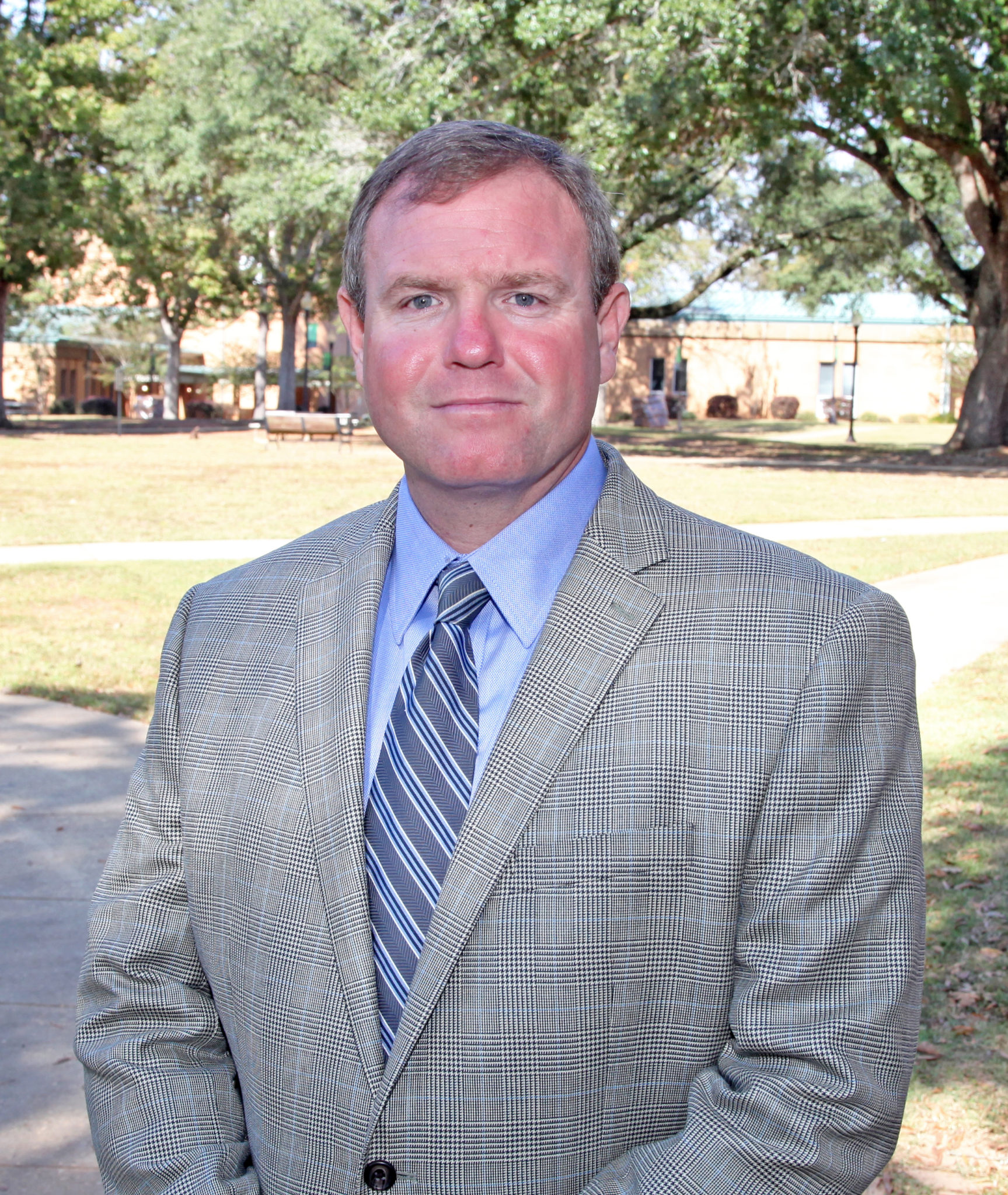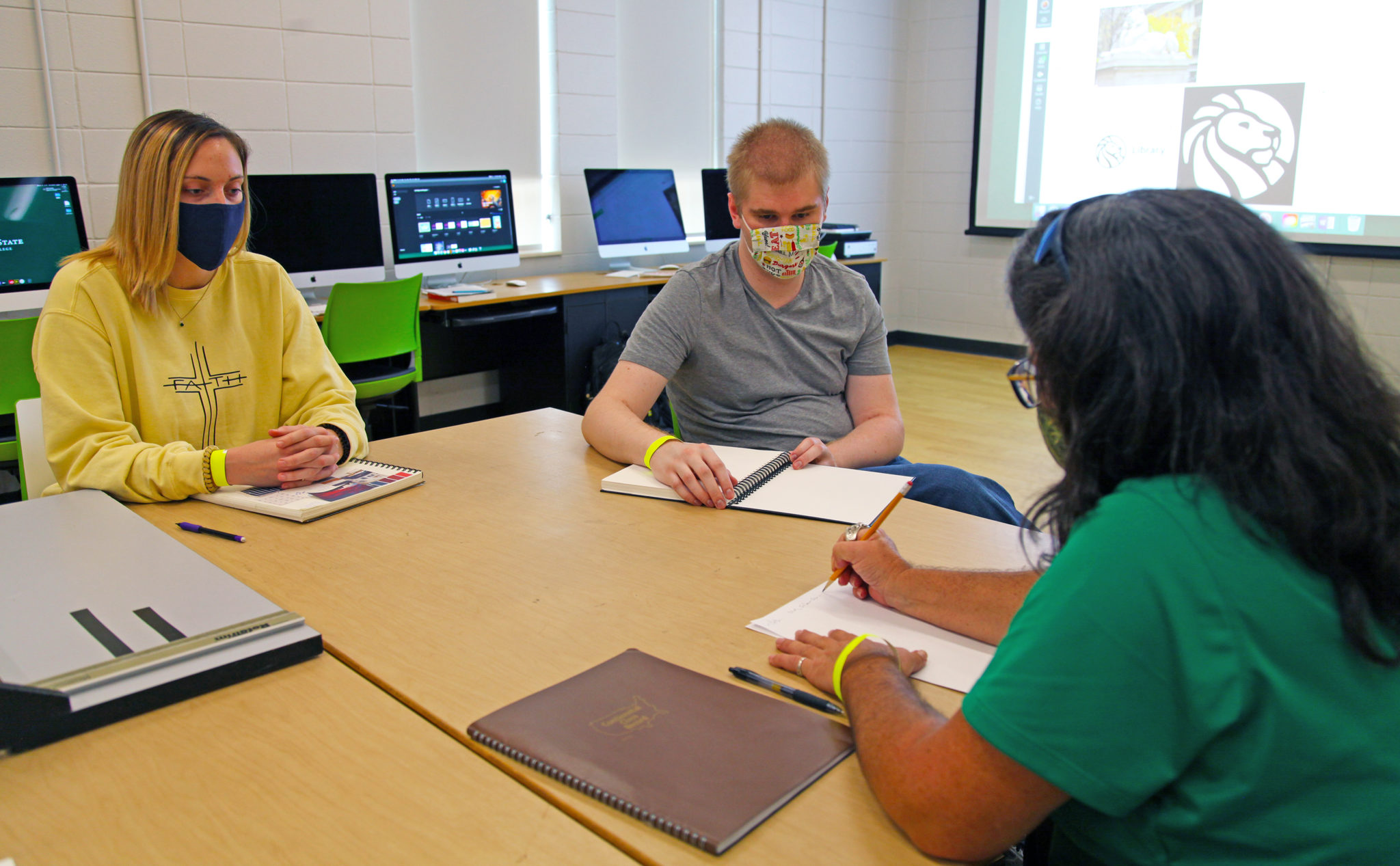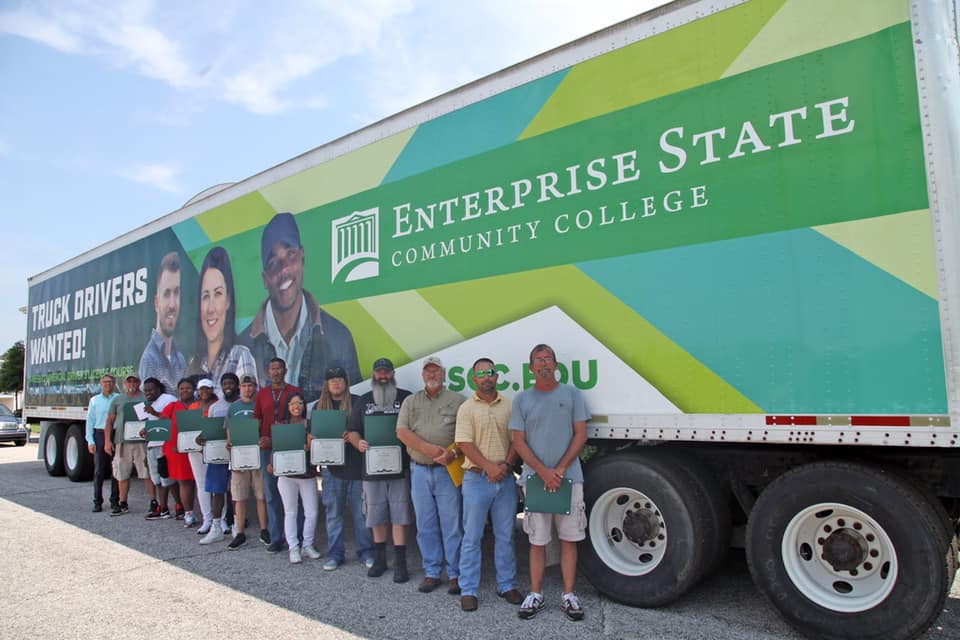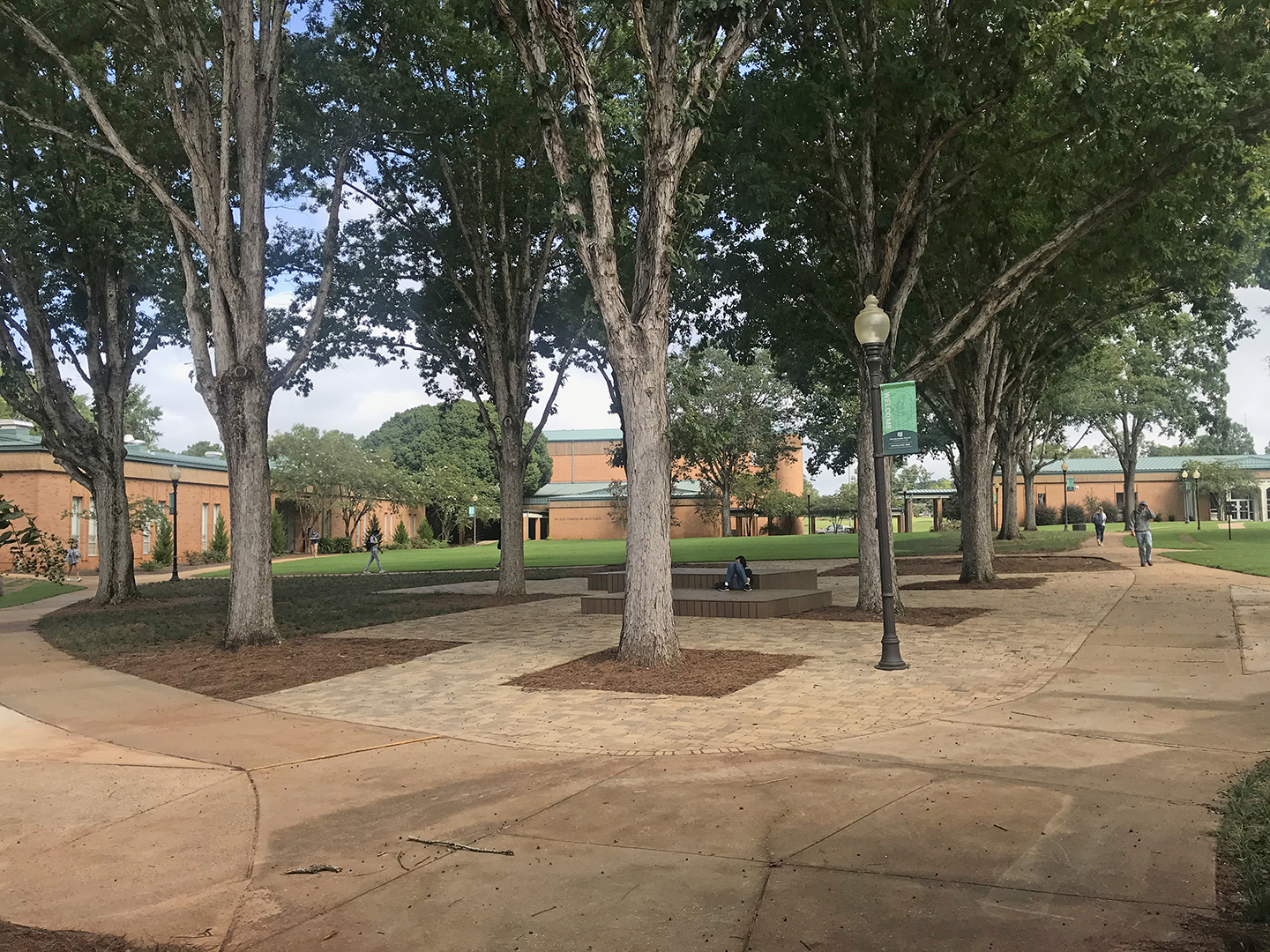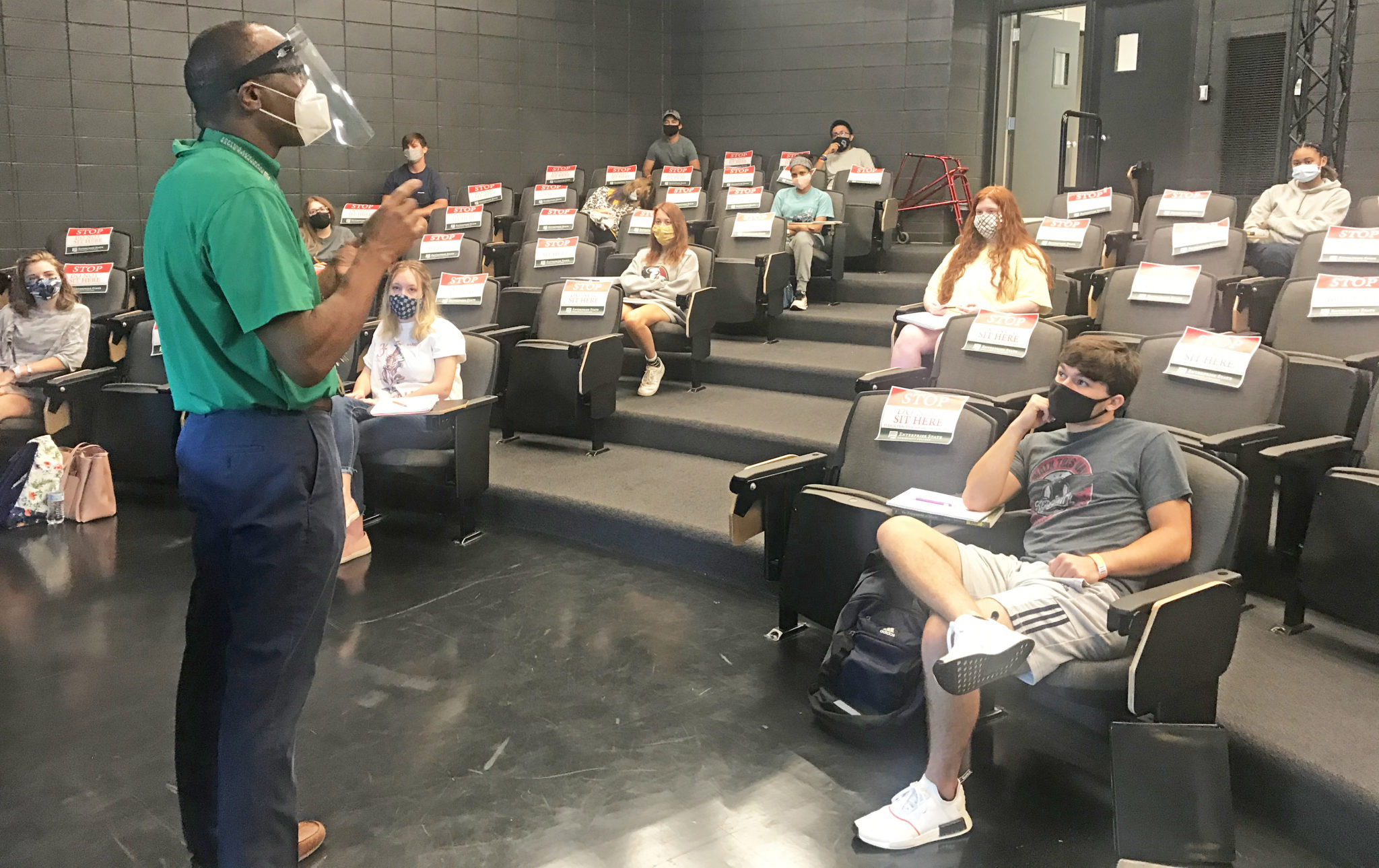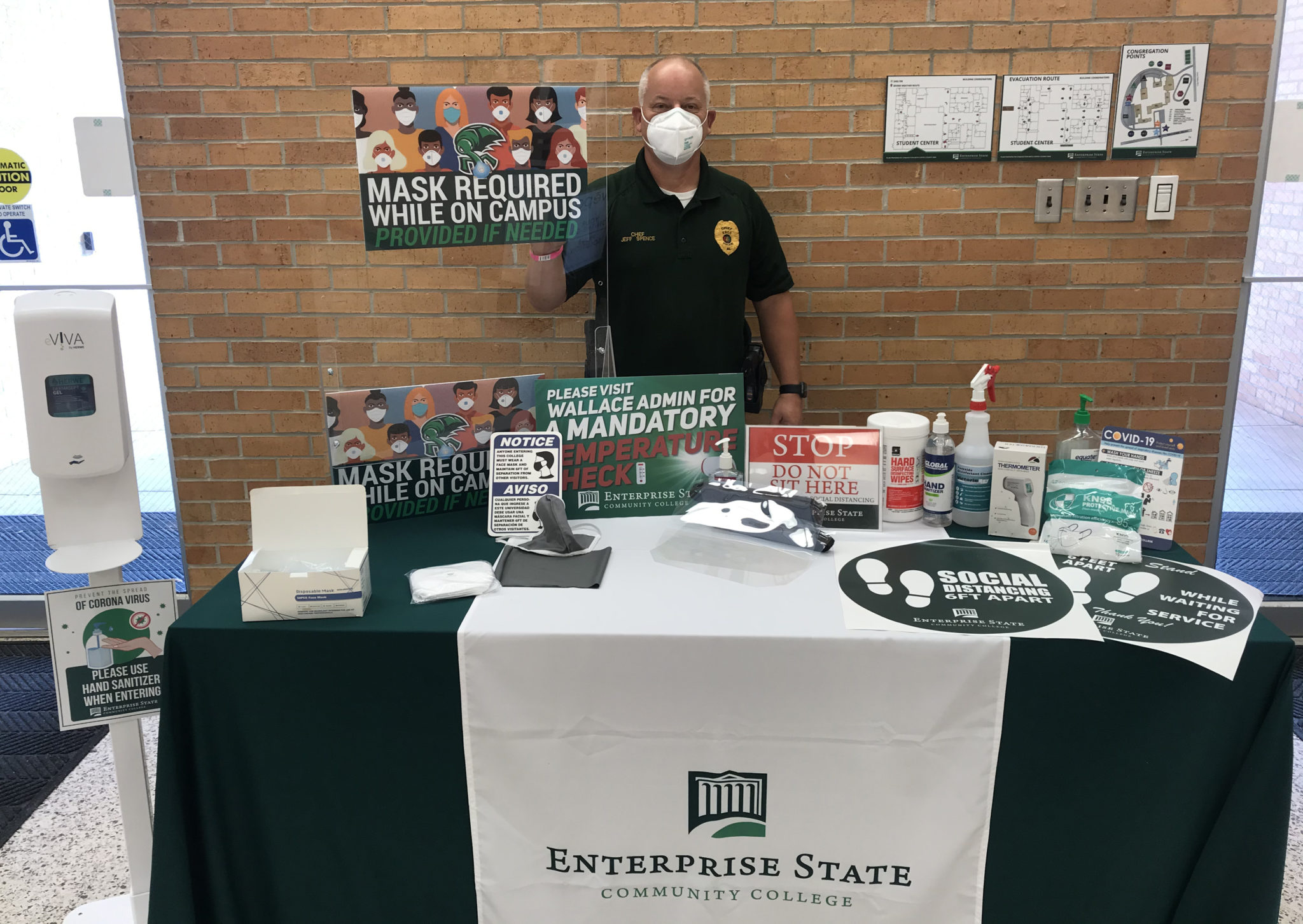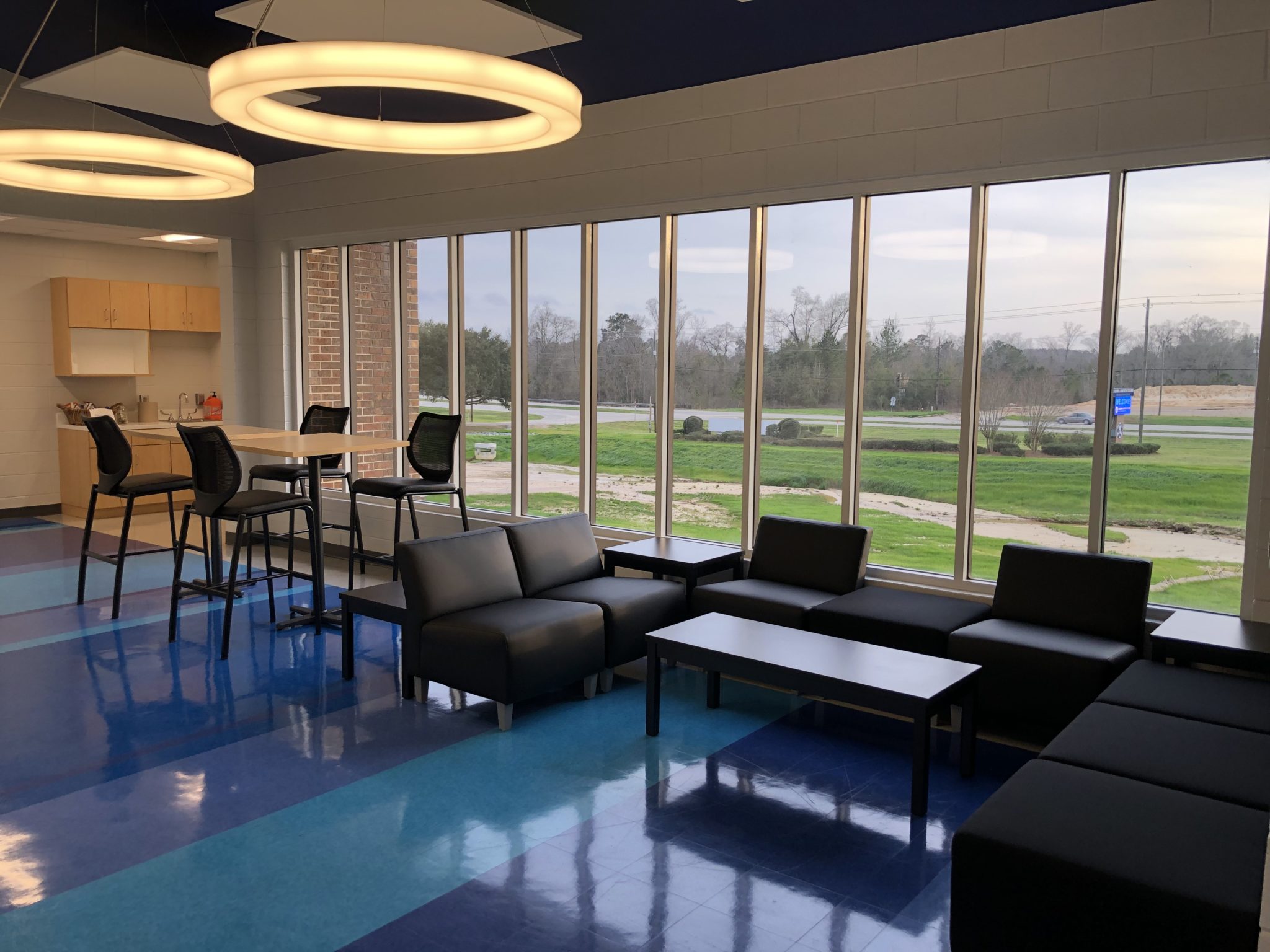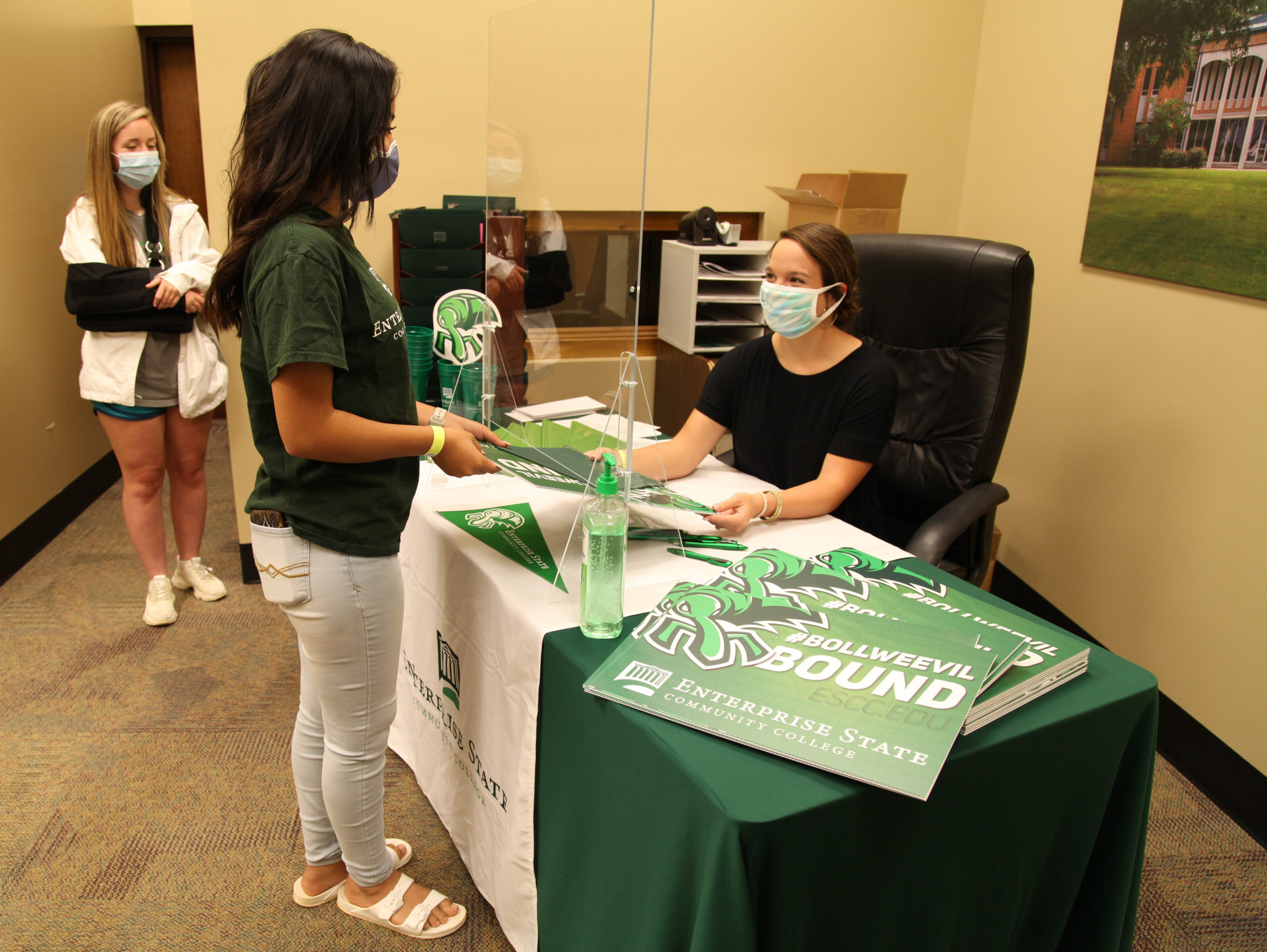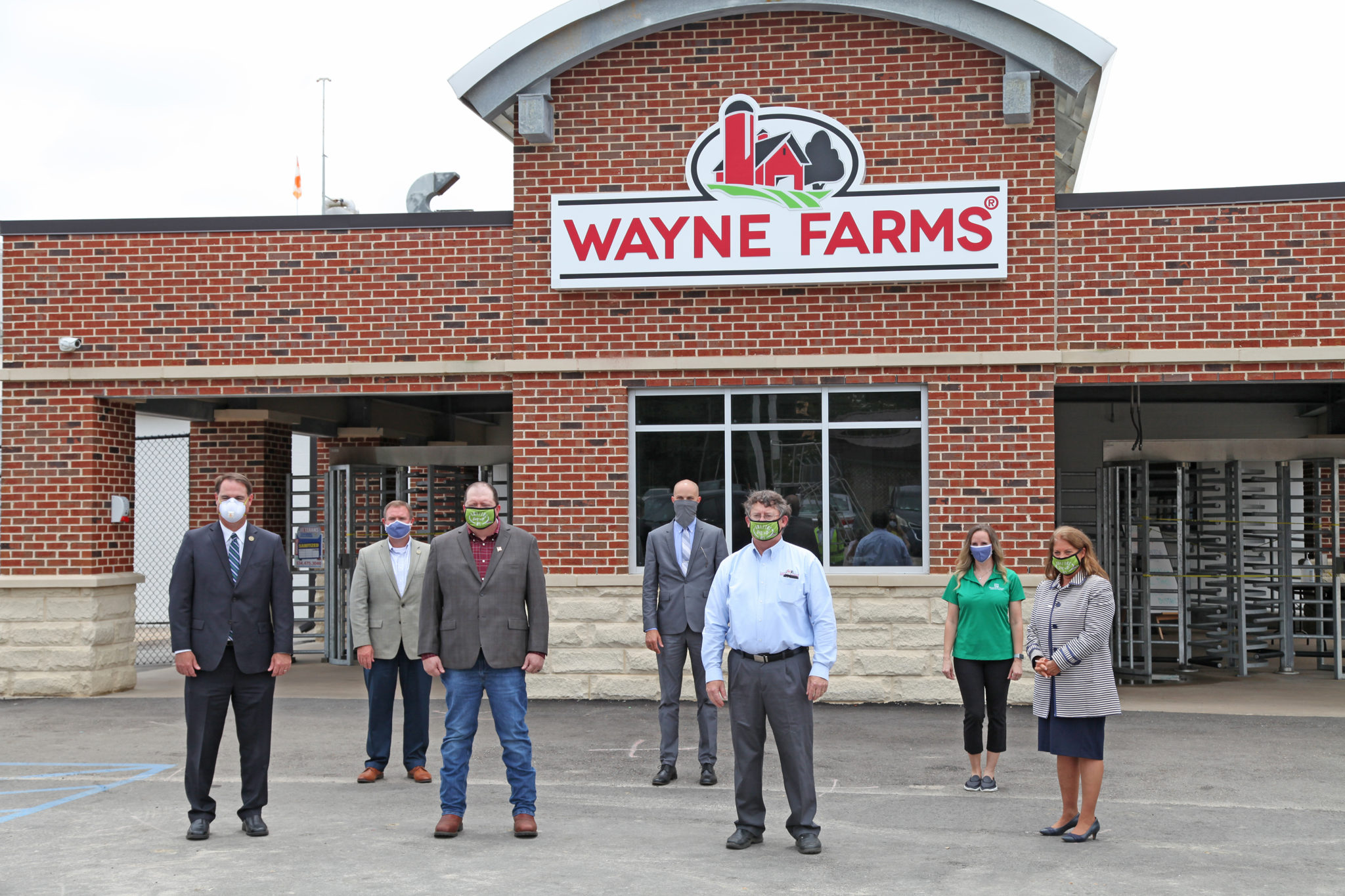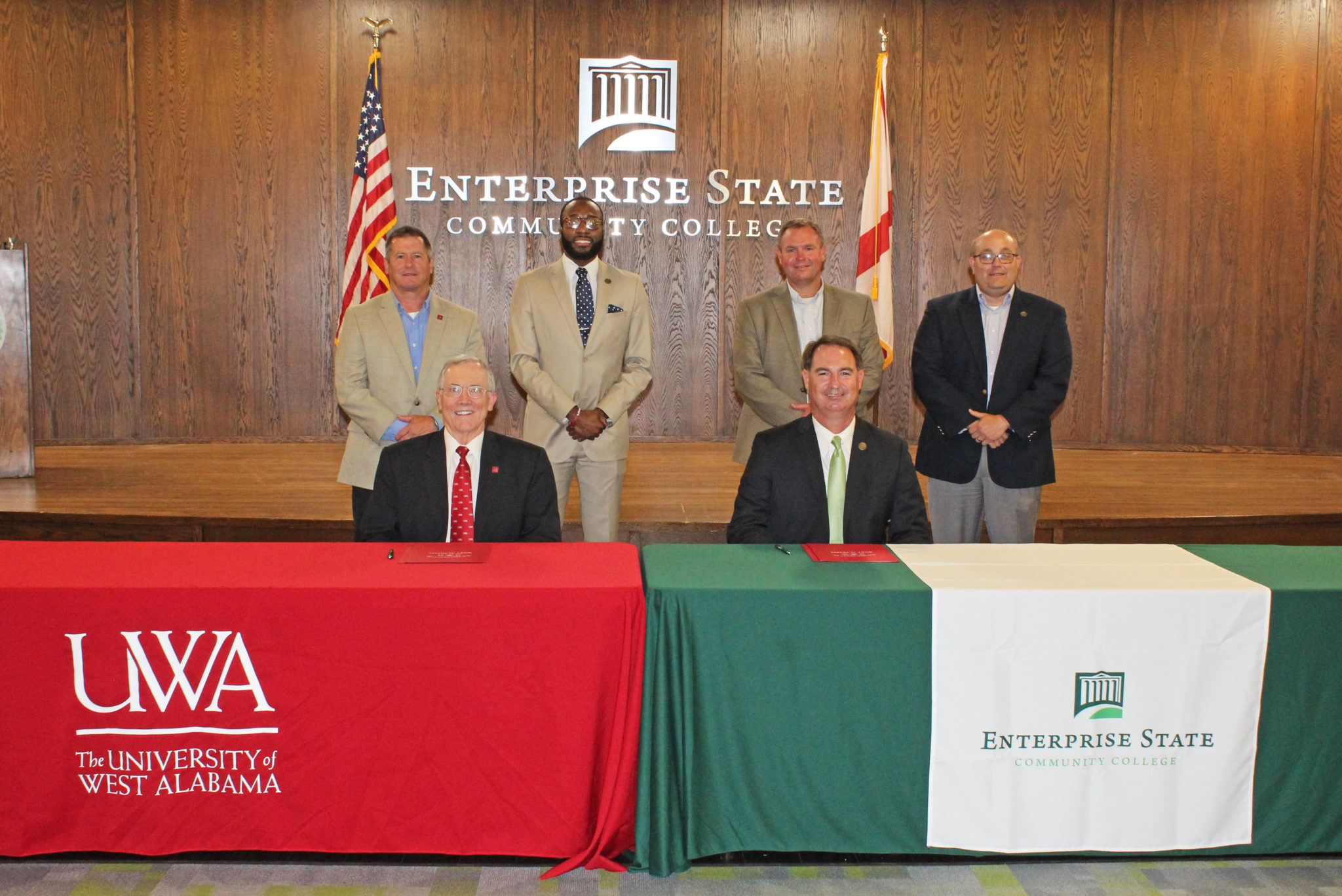Despite pandemic restrictions and a transition to a new student information system, Enterprise State Community College saw an increase in the Fall 2020 student enrollment.
From Fall 2019 to Fall 2020, ESCC saw a 2.6 percent increase in student enrollment, following a trend of enrollment increases at the College since Fall 2016. In addition to an increase in enrollment numbers, more students are taking online general academic and dual enrollment classes.
Face-to-face instruction on the Enterprise campus is the only area that saw a decrease in student numbers this fall. More online and hybrid class offerings were established as part of the College’s COVID-19 safety protocols.
Though there are fewer students taking classes on campus at ESCC this fall, instructors have made sure the same educational experience found in a traditional classroom can be found in the College’s online classes, according to English, Foreign Languages, and Communication Division Chair Dr. Anna Head.
“Since March, instructors have strived to create unique learning experiences for students who are pursuing their education under challenging circumstances,” Head said. “Within the Division of English, Foreign Languages, and Communication, faculty members have employed innovative technologies and honed their skills in the intricacies of virtual instruction in order to retain and perhaps even exceed the pre-pandemic level of instruction.
“Instructors are also dedicated to offering multiple course formats in order to accommodate the greatest possible number of students. Traditional online courses provide an excellent option for those students whose out-of-class responsibilities necessitate flexibility while online lecture courses with a virtual face-to-face component bring the classroom environment to students in remote locations at familiar times and with friendly faces. For students eager to return to the traditional classroom, the division is also offering hybrid courses that allow for face-to-face instruction in a safe, socially distanced environment with additional online instruction to promote a successful educational opportunity.
“As a higher education institution that is dedicated to serving its community, ESCC is constantly seeking multiple avenues through which to deliver quality education, a characteristic that has been invaluable in recent months as the College has continued to offer solid academic instruction amidst the challenges presented by the pandemic,” Head said.
In addition to online courses, technical courses offered on the Ozark campus and dual enrollment classes offered on both campuses saw an increase in students.
“A tremendous amount of work went into maintaining momentum and increasing our fall enrollment,” ESCC President Matt Rodgers said. “This is a testament to the staff. They continued to reach out to our students during a difficult time. They answered questions, provided support, and made every effort to help our students every step of the way to enrollment and registration. Everyone at the College has risen to the occasion, and I am so proud of this amazing group of people.”
During the summer, ESCC and AAC transitioned to a new system, Banner. This transition meant students could not register for classes during May, June, or part of July. This, in addition to no or reduced face-to-face interaction, led to new recruitment and registration efforts.
Recruiters hosted “Admissions Mondays” on Instagram and Facebook to answer incoming and current student questions about classes at ESCC or AAC. Additionally, all seniors in the ESCC and AAC service area were contacted to help with applications and registration, and if a student had applied to the College but had not registered for classes during the week of their scheduled virtual orientation session, he or she received an emailed reminder.
During the last few days before classes began Aug. 24, ESCC also offered extended weekend hours to ensure that schedules were finalized and financial aid was settled. Any students who were awarded financial aid but had not registered were also personally contacted, and students who needed to complete financial aid forms were assisted by admission staff.
According to Registrar Jennifer Olsen, the obstacles created by the transition to a new system and the pandemic made every member of the ESCC/AAC work harder together.
“For me, the hardest part was not being on campus altogether and launching Banner with fall enrollment,” Olsen said. “It made it hard to communicate and make sure information was being shared accurately, but I think this is where our team especially excelled. Our marketing department worked to make sure accurate information was being put out, our financial aid department worked overtime to help students ensure aid was in place and classes were paid for, and our admissions and advising departments came together to make sure students got the service they needed.”
She also highlighted the help Student Support Services offered with schedule planning and registering first-time freshmen as well as the support from Recruiter Emily Baker to help facilitate the ESCC orientation sessions, which were offered virtually this year.
“It was truly a team effort, and we have a great one,” Olsen said.
While it is too late to register for the full Fall 2020 semester, ESCC’s next five-week mini-term begins Oct. 14, and it’s not too late to register for classes. Students can find mini-term class offerings at escc.edu/schedule and register through their MyESCC account at escc.edu/myescc. For any questions, call (334)347-2623 to speak to an admission representative
“I want to personally thank all our students for choosing to join us this fall,” Rodgers said. “This semester may look different, but our mission is still the same. No matter if our students are online or in the classroom, we are continuing to provide the same first-class education and training while also offering the proper support they need to be successful.”
Cutline: Many ESCC classes are offered online this semester, but some classes are offered both in-class and online in a hybrid format, like the 2D Comprehension class led by Instructor Leslie Gibson. Gibson, right, meets with art students Karrie Jinwright, left, and Matthew Johnson during their hybrid class.
##
About Enterprise State Community College
Enterprise State Community College is a comprehensive community college that serves more than 1,800 students annually between its Enterprise campus and the Alabama Aviation Colleges in Andalusia and Ozark. Each campus and site currently fulfill the Alabama Community College System’s mission for education and training which leads to high-wage, high-demand jobs in integral careers worldwide. Students can obtain Associate degrees and certificates through multiple programs at the college.

